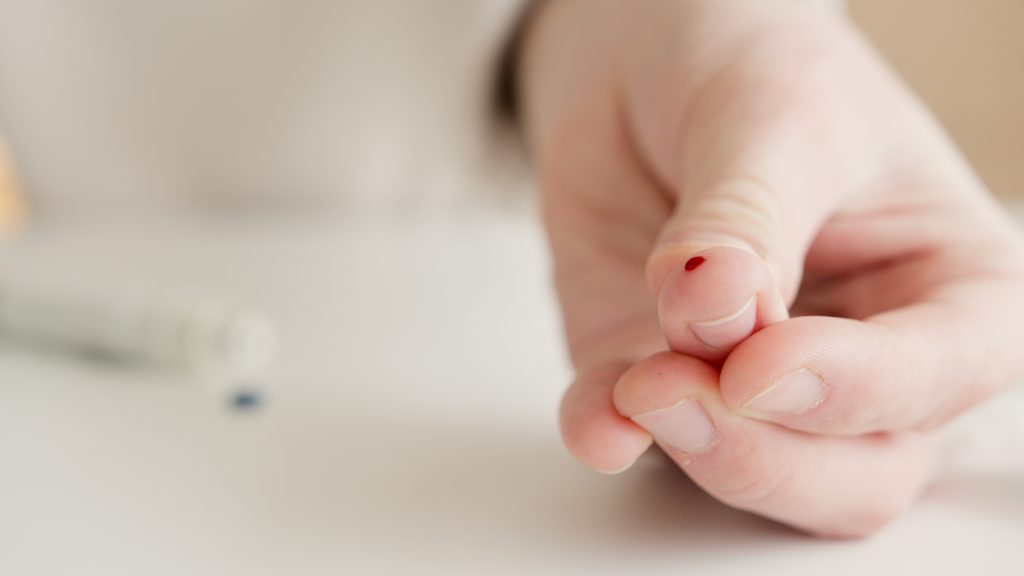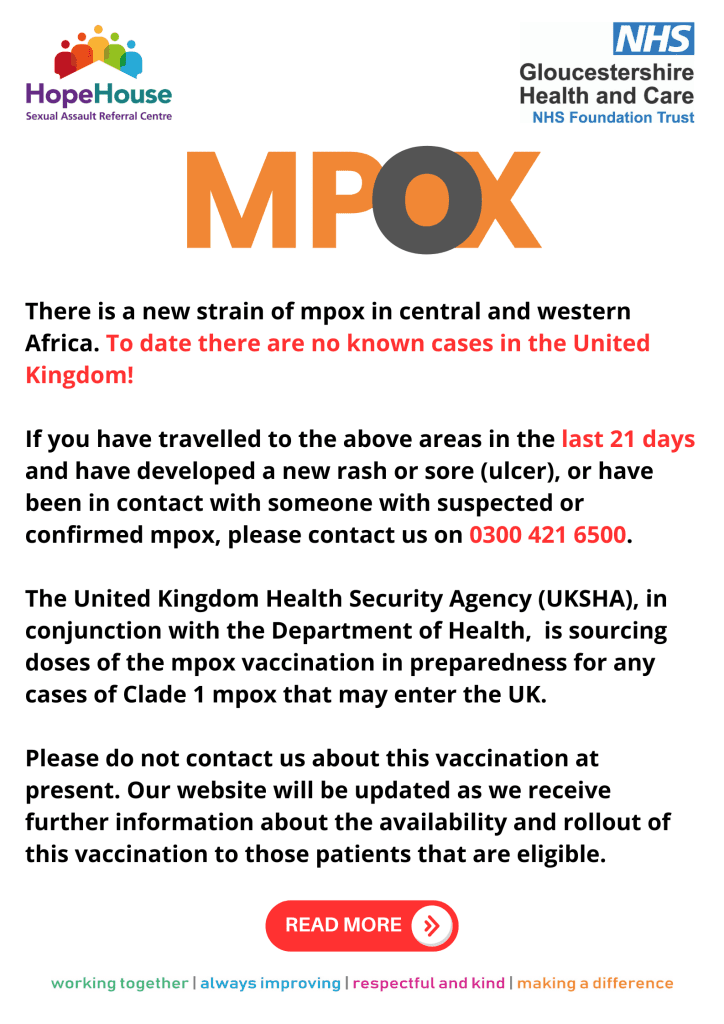Living with HIV
HIV stands for Human Immunodeficiency Virus.
HIV damages the immune system over time. This can mean that, without treatment and care, a person with HIV is at risk of developing serious infections and cancers that a healthy immune system would fight off.
The good news is that HIV is easily preventable and current treatment ensures people living with HIV can have long healthy lives. The treatment can’t get rid of HIV completely, but works by reducing the amount of HIV in the body so the immune system can improve. Once the HIV is undetectable in the blood it is untransmittable.
What’s On the Page
Getting help
Preventing HIV
PrEP
PEPSE
Treatment
Testing for HIV
FAQs
Testimonials
Getting help
HIV is a long-term condition and we have a team of specialists to help you to live a long and healthy life with HIV.
Our team is made up of doctors, specialist nurses, pharmacists, health care assistants, a specialist counsellor and a team secretary. We also work closely with The Eddystone Trust who can also offer support and advice to people living with HIV.
If you are newly diagnosed with HIV, we will take time to answer your questions and explain what to expect from us, as well as how you can be involved in caring for your health.
If you would like to transfer your care to us you can self-refer, and we will ask you to sign a consent form asking your present clinic to send your medical details. Click here for further information>
If you are worried you have been exposed to HIV
Call our triage line on 0300 421 6500
Preventing HIV
HIV lives in bodily fluids such as semen, blood, breast milk, and vaginal fluids of someone who is living with HIV.
The most common ways HIV can enter the body are:
- During condom-less anal and vaginal sex
- Needle sharing – for example, sharing injecting equipment
- From a mother with HIV to her baby during pregnancy, birth or through breastfeeding
It is important to know that if a person living with HIV is on treatment and has an undetectable viral load then they cannot transmit the virus to anyone, including a mother to her baby.
Despite some of the myths, it is not possible to acquire HIV from another person from holding hands, kissing, hugging, sharing a drinking glass, touching door handles, or sitting on a toilet seat etc.
It is best to use a condom when you have sex and if you inject drugs ensure you don’t share needles or injecting equipment with anyone.
Treatment
HIV is now classified as a chronic illness, not a fatal one. The recent and continuing improvements in anti-retroviral treatment (HIV medication) therapies mean that people living with HIV can experience a near-to-normal life expectancy, undetectable levels of virus, and enjoy a full life.
People on treatment with an undetectable virus level cannot pass the virus onto others. This is known as U=U, Undetectable = Untransmittable. The British HIV Association (BHIVA) now recommends that everyone diagnosed with HIV starts treatment straight away. This is because starting earlier is proven to keep people with HIV healthier.
HIV injectable medication
HIV injectable medication can now be offered in our clinic.
Before sex: PrEP
There is also medication called PrEP which can greatly reduce the risk of becoming HIV positive. PrEP stands for Pre-Exposure Prophylaxis and is a pill taken before sex.
You should consider it if you do not always use condoms for high-risk sex (e.g. unprotected sex with someone who could have HIV and is not on treatment).
PrEP only protects you from HIV transmission and NOT from any other sexually transmitted infections and we would encourage using condoms to protect yourself.
PrEP is now available free of charge from this clinic. If you want to discuss this further please contact us on 0300 421 6500 during the hours of 8am-5pm, Monday to Friday, or if you want an online resource please click the link.

After Sex: PEPSE

If you have had unprotected sex with someone you think may have HIV it may be necessary to be prescribed medication known as PEPSE (Post-Exposure Prophylaxis following Sexual Exposure). It can be prescribed in a sexual health clinic or in an Accident and Emergency department.
PEPSE is a 28-day course of medication that must be started within 72 hours of a risk (exposure to HIV), but ideally as soon as possible because it is more effective the sooner you take it. PEPSE works by reducing the risk of acquiring the infection.
If you have been given PEPSE by another sexual health clinic or from Accident and Emergency you will normally be given an initial 5 day pack of treatment and you will need to contact us for a follow up appointment and more medication.
If you are concerned you may need PEPSE, please contact 0300 421 6500 during the hours of 8am-5pm Monday to Friday (excluding weekends and bank holidays) to arrange an urgent review by a clinician.
If our service is closed please attend your local Accident and Emergency Department.
Testing for HIV
People can live with HIV for years before having any symptoms. The only way to be sure is to have a HIV test. If you are living with HIV, the sooner you are diagnosed, the sooner you can start treatment which will keep you well and will stop you passing on the virus.
Signs of HIV infection can’t be detected in the blood immediately. It usually happens within 6 1/2 weeks of infection (sometimes longer). Different tests can also take different lengths of time before they can detect a recent infection.
If your risk was in the last three months, tell the person testing you, as it may affect the type of test they use.
There are now many quick and convenient ways to test, including:
- Blood test – where a sample of blood is taken in clinic and sent for testing in a laboratory
- Point of care test – where a sample of saliva from your mouth or a small spot of blood from your finger is taken in clinic. This sample does not need to be sent to a laboratory and the result is available within a few minutes.
- Home sampling kit – where you collect a small sample of blood at home and send it off in the post for testing. You can request a home testing kit here.

Important Questions
I am worried that I have been exposed to HIV recently, what can I do?
A healthcare professional can assess your risk of HIV transmission and if necessary you will be offered Post-Exposure Prophylaxis Following Sexual Exposure (PEPSE). This is a course of medication to prevent HIV transmission and is taken for 28 days.
It is recommended that you start taking PEPSE as soon as possible after exposure, preferably within 24 hours, but can be offered it up to 72 hours. If you think you need PEPSE you can call us Monday to Friday, 8am-5pm. Out of hours, such as evenings, bank holidays and weekends, you should go straight to A&E – the sooner the better, as more effective!
I have heard about drugs you can take to prevent you from getting HIV, how does this work?
There is a drug which can be taken to prevent HIV transmission called Pre-Exposure Prophylaxis (PrEP). As the name suggests, PrEP is taken before you have sex.
PrEP is now available from this clinic. It only protects you from HIV transmission and NOT from any other sexually-transmitted infections, and we would encourage using condoms to protect yourself.
To see if you are eligible to be prescribed PrEP, you need to be over 16 years old and match one or more of these descriptions:
- You’re HIV negative and have had condomless sex in the past three months and think you will again in the next three months, and you are a: cis or transgender MSM or transgender woman.
- You’re HIV negative and expect to have sex without condoms with an HIV-positive partner/s with a detectable viral load.
- You don’t meet the first two descriptions and you might be having heterosexual sex, but you’ve been clinically assessed as being at a similar high risk of becoming HIV positive.
How soon after exposure can someone test for HIV?
This usually requires waiting 6 1/2 weeks before taking an antibody-based test which is 99% accurate.
A further test can be taken 8 weeks after the risk in clinic and this is 100% accurate. If you are using a home testing kit this is 100% accurate 12 weeks after the risk. This is to cover the small chance that you take longer than 6 1/2 weeks to generate an antibody response.
I have been diagnosed with HIV. How can I have a normal life?
HIV is now classified as a chronic illness, and although not curable it is treatable with medication. The recent and continuing improvements in medication mean that people living with HIV can experience a normal life expectancy, and enjoy a full life.
Of course, this means we must work together with you to devise and maintain sustainable treatment regimens which will help keep you healthy. Monitoring for adherence and resistance to medication are key to ensuring that patients benefit as much as they can from modern medicine.
When can I expect to start treatment after a positive diagnosis of HIV?
Testing positive for HIV often leaves a person overwhelmed with questions and concerns. It is important to remember that HIV can be treated effectively with medicine.
Treatment with HIV medicines (called anti-retroviral treatment, or ART) is recommended for everyone with HIV. The first step after testing positive for HIV is to see a healthcare provider, even if you don’t feel sick.
We will discuss treatment options, taking into consideration when you feel ready to start taking treatment. Ideally, prompt medical care and treatment with HIV medicine as soon as possible is the best way to live a long, healthy life and reduce the risk of transmission to others.
How effective is HIV Treatment?
With successful HIV treatment, the aim is to have an ‘undetectable viral load’. This is shown via a blood test and indicates that the medication is working. This doesn’t mean the HIV is not there, just that the amount of the virus in the blood is too low for tests to pick up. An undetectable viral load also means someone with HIV cannot pass the virus on. Undetectable = Untransmissible (U=U)
Viral load can increase again if the person with HIV stops taking their treatment.
The British HIV Association (BHIVA) now recommends that everyone diagnosed with HIV starts treatment straight away. This is because starting earlier is proven to keep people with HIV healthier.
Do I need to tell my partner of my HIV diagnosis?
If you have just been diagnosed with HIV you will be thinking about whether to tell your partner, whether they are long-term or casual.
Your partner will need to have an HIV test. If you have had unprotected sex recently, your partner may need to wait for a few weeks before testing to make sure the result is accurate.
You may be in a long-term or casual relationship, or you might just have sex with someone once. In each of these situations the decisions you make about telling a partner will be different.
Some patients may choose to inform their partners themselves, but we are able to help and support you with any decisions you make.
Does my GP need to know about my HIV status?
No, you don’t have to tell your GP if you don’t want to. However, we encourage all of our patients to register with a GP. If you give us permission we will regularly communicate with your GP advising of any changes in your HIV care. Many patients have problems unrelated to HIV which GPs can manage safely.
Will I always see the same doctor in your HIV service?
Our team consists of consultants, specialist nurses, healthcare assistant, pharmacist and pharmacy technician.
One or more of the team will see you at each of your visits and while we try to keep your appointments with the same consultant, this is not always possible. We also have the benefit of having a counsellor and a support worker from The Eddystone Trust, to help with any emotional or practical support you may need.
How often will I need to come to the clinic?
Initially you may need to be seen more frequently, but once established on treatment, patients may only need to be seen every 6 months. We want you to get the best from your appointment with the doctor. It is therefore important you have up-to-date blood results. These blood tests should be at least two to four weeks before your appointment with the doctor.
What do I need to do if I want to transfer my HIV care to you from another service?
You don’t need a referral to transfer your care to us – simply ring the team on 0300 421 6542. We will ask you a few initial questions about what medication you are currently on, how much medication you have left and which service you are transferring from.
With your permission we will contact that service and ask for a transfer letter with the relevant information to continue your care. We will then make you an appointment to see either the consultant or specialist nurse for bloods.
What do I do if I am running out of HIV medication?
It is very important you do not run out of medication, to ensure the best control of your HIV and prevent resistance to the medication.
If you need a repeat prescription before your next appointment, please contact the office as soon as possible on 0300 421 6542.
Ideally we would like you to give us two weeks’ notice when you are running out of medication, so that we have time to process the prescription.
What do I do if I miss a dose of HIV medication?
You should try and make an effort to take every dose of your medication at the right time and in the right way. But most people taking HIV treatment occasionally forget to take a dose of their treatment.
As soon as you realise you have missed a dose, take it, and then have your next dose at the usual time. If you only realise you have missed a dose when you come to the next dose, take the normal dose. Do not take a double dose to compensate for the one you have missed.
If you have missed a dose, and are not sure what to do, telephone the clinic for advice on 0300 421 6542.
If you are regularly missing doses of your medication, or taking them late, talk about this with your doctor, pharmacist or nurse at the clinic. They will review the best ways to help you manage your medications.
People we have helped
“We have just moved to the area so needed to register with the HIV team. The admin of the process and the welcome and care we received was wonderful. Thank you!”
“I have been seeing the HIV team for 4 years. Absolutely excellent service.
ALL staff are kind, caring, compassionate and I would literally be lost without them. 100% faultless.
Outstanding care and treatment.”
“Excellent service and staff.”
“The doctor reassured me a lot and helped my understanding. Everyone is very nice in the service.”
“HIV blood results. Excellent duty of care as always.”
External help

Eddystone Trust

Aidsmap

i-base
For Professionals
Information for professionals including referral information is available on our dedicated professionals page.

